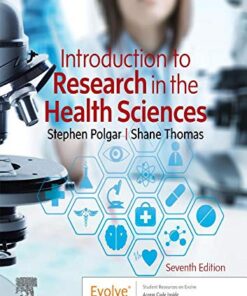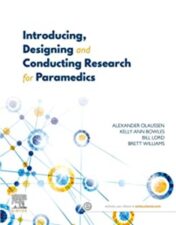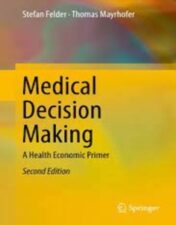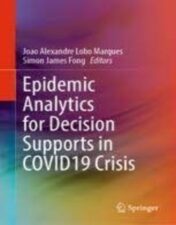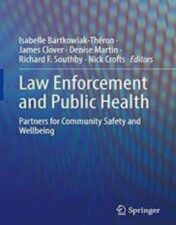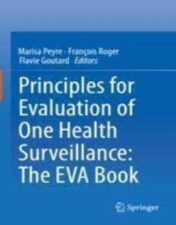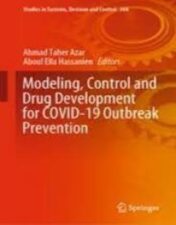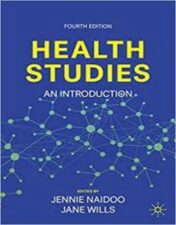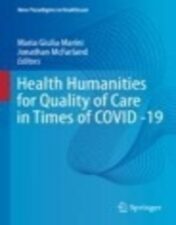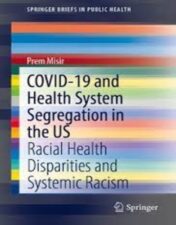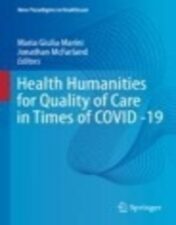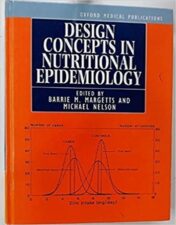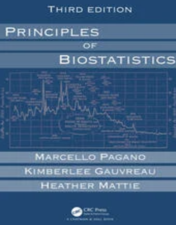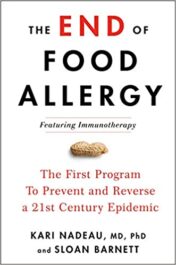Discover the Best Epidemiology Books to Advance Your Knowledge
Discover the Best Epidemiology Books Now!
Are you looking for the best epidemiology books to help you understand the science of disease and health in populations? Look no further! At DentalBooks.net, we have a wide selection of books on epidemiology that will provide you with the knowledge and skills you need to become an expert in this field. From introductory texts to advanced research, our collection of epidemiology books covers all aspects of the subject. Whether you are a student, researcher, or practitioner, you can find the perfect book to meet your needs. Browse our selection today and start learning more about epidemiology!
Basic Sciences Books
Introduction to Research in the Health Sciences, 7th Edition (Original PDF from Publisher)
Epidemiology Books
Pandemic India: From Cholera to Covid-19 2022 epub+converted pdf
Epidemiology Books
What Is Life and How Might It Be Sustained?: Reflections in a Pandemic 2022 Epub+ converted pdf
Epidemiology Books
What Is Life and How Might It Be Sustained?: Reflections in a Pandemic 2022 Original PDF
Epidemiology Books
Epidemiology Books
Epidemiology Books
Principles of Genetics and Molecular Epidemiology 2022 original pdf
Epidemiology Books
Medical Decision Making A Health Economic Primer 2022 original pdf
Epidemiology Books
Epidemic Analytics for Decision Supports in COVID19 Crisis 2022 original pdf
Epidemiology Books
Law Enforcement and Public Health Partners for Community Safety and Wellbeing 2022 original pdf
Epidemiology Books
Epidemiology Books
Principles for Evaluation of One Health Surveillance: The EVA Book 2022 original pdf
Epidemiology Books
Geospatial Technology for Human Well-Being and Health 2022 original pdf
Epidemiology Books
Molecular Typing in Bacterial Infections, Volume II 2022 original pdf
Epidemiology Books
Epidemiology Books
Modeling, Control and Drug Development for COVID-19 Outbreak Prevention 2022 original pdf
Epidemiology Books
Epidemiology Books
Molecular Typing in Bacterial Infections, Volume I 2022 original pdf
Epidemiology Books
Biochemical, Immunological and Epidemiological Analysis of Parasitic Diseases 2022 original pdf
Epidemiology Books
Epidemiology Books
Epidemiology Books
Epidemiology Books
Epidemiology Books
Design Concepts in Nutritional Epidemiology (Oxford Medical Publications) High quality scanned pdf
Epidemiology Books
Epidemiology Books
Global Epidemiology of Cancer: Diagnosis and Treatment 2022 Original PDF
Epidemiology Books
Introduction
Are you looking to advance your knowledge in epidemiology? Look no further! Discover the Best Epidemiology Books to Advance Your Knowledge is here to help. This guide provides an overview of the best books on epidemiology, from introductory texts to advanced research guides. Whether you are a student, researcher, or practitioner, this guide will help you find the perfect book to meet your needs. With detailed reviews and summaries of each book, you can easily compare and contrast different titles to find the one that best suits your interests and goals. Get ready to take your epidemiology knowledge to the next level!
Introduction to Epidemiology: A Comprehensive Guide to the Principles and Practices of Epidemiology
Introduction to Epidemiology: A Comprehensive Guide to the Principles and Practices of Epidemiology is an essential resource for anyone interested in learning about the principles and practices of epidemiology. This comprehensive guide provides a thorough overview of the field, from its history and basic concepts to the latest research and methods. It covers topics such as study design, data collection, analysis, and interpretation, as well as ethical considerations.
The book begins with an introduction to the history and development of epidemiology, including the major milestones and key figures in the field. It then moves on to discuss the core principles of epidemiology, such as causation, risk factors, and measures of disease frequency. The book also covers the various types of epidemiological studies, including cohort, case-control, cross-sectional, and ecological studies. It explains how to select the appropriate study design for a given research question, as well as how to collect, analyze, and interpret data.
In addition, the book discusses the ethical considerations that must be taken into account when conducting epidemiological research. It covers topics such as informed consent, confidentiality, and the use of human subjects in research. Finally, the book provides an overview of the current state of epidemiology, including recent advances in the field and future directions.
Overall, Introduction to Epidemiology: A Comprehensive Guide to the Principles and Practices of Epidemiology is an invaluable resource for anyone interested in learning about the fundamentals of epidemiology. It provides a comprehensive overview of the field, from its history and basic concepts to the latest research and methods. With its clear explanations and practical examples, this book is an essential resource for students, researchers, and practitioners alike.
Infectious Disease Epidemiology: Theory and Practice
Infectious Disease Epidemiology: Theory and Practice is a comprehensive guide to the study of infectious diseases. It provides an in-depth look at the epidemiology of infectious diseases, including their causes, transmission, prevention, and control. The book covers a wide range of topics, from basic concepts such as disease surveillance and outbreak investigation to more advanced topics such as mathematical modeling and public health policy.
The book begins with an introduction to the field of infectious disease epidemiology, including its history, scope, and methods. It then moves on to discuss the various types of infectious diseases, including bacterial, viral, fungal, and parasitic infections. It also covers the epidemiology of emerging and re-emerging infectious diseases, as well as the role of climate change in the spread of infectious diseases.
The book then delves into the principles of infectious disease epidemiology, including the epidemiologic triangle, risk factors, and the chain of infection. It also covers the use of epidemiologic tools such as case-control studies, cohort studies, and ecological studies. In addition, it discusses the application of epidemiologic methods to the study of infectious diseases, including the use of laboratory tests, contact tracing, and outbreak investigations.
The book also covers the principles of infectious disease control, including immunization, vector control, and antimicrobial resistance. It also discusses the role of public health interventions in controlling infectious diseases, such as vaccination programs, sanitation measures, and food safety regulations. Finally, it examines the ethical considerations associated with infectious disease epidemiology, including informed consent, confidentiality, and research ethics.
Infectious Disease Epidemiology: Theory and Practice is an essential resource for students and professionals interested in learning about the epidemiology of infectious diseases. It provides a comprehensive overview of the field, from basic concepts to advanced topics, and is an invaluable resource for anyone looking to gain a better understanding of this important area of public health.
Epidemiology: With STUDENT CONSULT Online Access
Epidemiology with STUDENT CONSULT Online Access is an essential resource for medical students and professionals alike. It provides comprehensive coverage of the principles and practice of epidemiology, from basic concepts to advanced topics. The book is organized into four sections: Introduction to Epidemiology, Epidemiologic Methods, Special Topics in Epidemiology, and Applications of Epidemiology.
The Introduction to Epidemiology section covers the fundamentals of epidemiology, including definitions, history, and scope. It also introduces key concepts such as risk factors, causality, and study designs. This section also includes a discussion of ethical considerations in epidemiologic research.
The Epidemiologic Methods section provides an overview of the methods used in epidemiologic research, including descriptive epidemiology, analytic epidemiology, and public health surveillance. It also covers the use of epidemiologic data for decision-making and policy development.
The Special Topics in Epidemiology section covers a range of topics, including infectious disease epidemiology, environmental epidemiology, occupational epidemiology, and genetic epidemiology. It also discusses the use of epidemiologic data for public health interventions.
The Applications of Epidemiology section provides an overview of the application of epidemiologic methods to clinical practice, public health, and research. It also covers the use of epidemiologic data for health services research and quality improvement.
In addition to the text, the book includes STUDENT CONSULT Online Access, which provides access to additional resources such as interactive case studies, self-assessment questions, and links to relevant websites. This online access allows readers to further explore the topics covered in the book and apply them to their own practice.
Overall, Epidemiology with STUDENT CONSULT Online Access is an invaluable resource for medical students and professionals interested in learning more about the principles and practice of epidemiology. It provides comprehensive coverage of the subject, from basic concepts to advanced topics, and includes access to additional resources through STUDENT CONSULT Online Access.
Epidemiology for Public Health Practice
Epidemiology for Public Health Practice is a field of study that focuses on the distribution and determinants of health-related states or events in specified populations, and the application of this study to the control of health problems. It is an essential component of public health practice, as it provides the evidence base for public health interventions and policies.
Epidemiologists use a variety of methods to identify and measure the occurrence of health-related states or events in populations. These include descriptive epidemiology, which involves the collection and analysis of data on the frequency, distribution, and determinants of health-related states or events; analytic epidemiology, which uses analytical techniques such as case-control studies and cohort studies to investigate the causes of health-related states or events; and experimental epidemiology, which involves the use of randomized controlled trials to evaluate the effectiveness of interventions.
Epidemiologists also use a variety of tools to monitor and assess the impact of public health interventions and policies. These include surveillance systems, which are used to detect and monitor changes in the occurrence of health-related states or events; evaluation studies, which are used to assess the effectiveness of interventions; and modeling studies, which are used to predict the potential impact of interventions.
Epidemiology for Public Health Practice is a dynamic field that is constantly evolving in response to new challenges and opportunities. As such, it is important for public health practitioners to stay up to date with the latest developments in the field. This includes staying abreast of new research findings, understanding the implications of new technologies, and being aware of emerging trends in public health practice.
Essentials of Epidemiology in Public Health
Essentials of Epidemiology in Public Health is a comprehensive introduction to the field of epidemiology and its application to public health. It provides an overview of the principles, methods, and tools used in epidemiologic research and practice. The book covers topics such as the history of epidemiology, study designs, data collection and analysis, and the interpretation of results. It also discusses the ethical considerations involved in conducting epidemiologic studies and the use of epidemiologic evidence in public health decision-making.
The book is divided into four parts. Part I introduces the basic concepts of epidemiology, including definitions, measures of disease frequency, and sources of data. Part II focuses on study designs, including cohort, case-control, cross-sectional, and ecological studies. Part III covers data collection and analysis, including sampling, measurement, and statistical methods. Part IV examines the interpretation of results and the use of epidemiologic evidence in public health decision-making.
Essentials of Epidemiology in Public Health is an invaluable resource for students and practitioners of public health. It provides a comprehensive overview of the field and serves as a reference for those who are already familiar with the basics of epidemiology. The book is written in an accessible style and includes numerous examples and illustrations to help readers understand the material. It is an essential resource for anyone interested in learning more about epidemiology and its application to public health.

